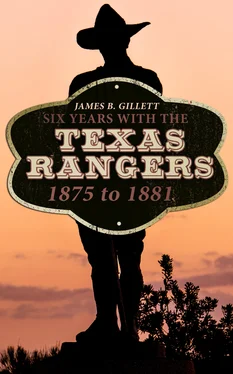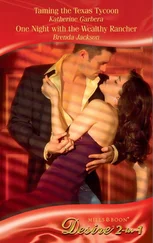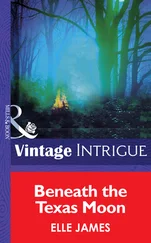James B. Gillett - Six Years With the Texas Rangers - 1875 to 1881
Здесь есть возможность читать онлайн «James B. Gillett - Six Years With the Texas Rangers - 1875 to 1881» — ознакомительный отрывок электронной книги совершенно бесплатно, а после прочтения отрывка купить полную версию. В некоторых случаях можно слушать аудио, скачать через торрент в формате fb2 и присутствует краткое содержание. Жанр: unrecognised, на английском языке. Описание произведения, (предисловие) а так же отзывы посетителей доступны на портале библиотеки ЛибКат.
- Название:Six Years With the Texas Rangers: 1875 to 1881
- Автор:
- Жанр:
- Год:неизвестен
- ISBN:нет данных
- Рейтинг книги:3 / 5. Голосов: 1
-
Избранное:Добавить в избранное
- Отзывы:
-
Ваша оценка:
- 60
- 1
- 2
- 3
- 4
- 5
Six Years With the Texas Rangers: 1875 to 1881: краткое содержание, описание и аннотация
Предлагаем к чтению аннотацию, описание, краткое содержание или предисловие (зависит от того, что написал сам автор книги «Six Years With the Texas Rangers: 1875 to 1881»). Если вы не нашли необходимую информацию о книге — напишите в комментариях, мы постараемся отыскать её.
Six Years With the Texas Rangers: 1875 to 1881 — читать онлайн ознакомительный отрывок
Ниже представлен текст книги, разбитый по страницам. Система сохранения места последней прочитанной страницы, позволяет с удобством читать онлайн бесплатно книгу «Six Years With the Texas Rangers: 1875 to 1881», без необходимости каждый раз заново искать на чём Вы остановились. Поставьте закладку, и сможете в любой момент перейти на страницу, на которой закончили чтение.
Интервал:
Закладка:
At once there was a terrible commotion. The Indians rounded up their stock and caught fresh mounts almost in the twinkling of an eye. Then, led by their old chief, they took positions on a little elevated ground some two hundred yards beyond the loose horses. The redskins stationed themselves about fifteen or twenty feet apart, their battle line when formed being about one hundred yards wide. As each warrior took his station he dismounted, stood behind his horse and prepared to fire when given the signal.
The captain with a smile turned to us and said, "Boys, they are going to fight us. See how beautifully the old chief forms his line of battle."
From a little boy I had longed to be a ranger and fight the Indians. At last, at last, I was up against the real thing and with not so much as an umbrella behind which to hide. I was nervous. I was awfully nervous.
We were now within one hundred steps of the redskins. Then came the order to dismount, shoot low and kill as many horses as possible. The captain said as we came up that every time we got an Indian on foot in that country we were sure to kill him. With the first shot everybody, Indian and ranger, began firing and yelling.
In a minute we had killed two horses and one Indian was seen to be badly wounded. In another minute the redskins had mounted their horses and were fleeing in every direction. Captain Roberts now ordered us to mount and follow them. The roar of the guns greatly excited my pony and he turned round and round. I lost a little time in mounting, but when I did get settled in the saddle I saw an Indian running on foot. He carried a Winchester in his hand and waved to another Indian who was riding. The latter turned and took the one on foot up behind him. As they started away for a race I thought to myself that no grass pony on earth could carry two men and get away from me and Old Coley. The Indians had a good animal, but I gradually closed on them. The redskin riding behind would point his gun back and fire at me, holding it in one hand. I retaliated by firing at him every time I could get a cartridge in my old Sharps carbine. I looked back and saw Ed Seiker coming to my aid as fast as old Dixie would run. He waved encouragement to me.
Finally the old brave ceased shooting, and as I drew a little closer he held out his gun at arm's length and let it drop, probably thinking I would stop to get it. I just gave it a passing glance as I galloped by. He then held out what looked to be a fine rawhide rope and dropped that, but I never took the bait. I just kept closing in on him. He now strung his bow and began using his arrows pretty freely. Finally he saw I was going to catch him, and turned quickly into a little grove of mesquite timber. I was considered a fairly good brush rider, and as we went in among the trees I drew right up within twenty steps of the brave, jumped from my mount and made a sort of random shot at the horse, Indian and all. The big .50 caliber bullet struck the Indian pony just where its head couples on its neck, passed through the head and came out over the left eye. It killed the horse at once and it fell forward twenty feet.
The old warrior hit the ground running, but I jumped my horse and ran after him. As I passed the dead horse I saw the front rider struggling to get from under it. To my surprise I saw he was a white boy between fifteen and sixteen years old with long bright red hair.
By this time Ed Seiker had arrived and was dismounting. The fugitive warrior now peeped from behind a tree and I got a fine shot at his face but overshot him six inches, cutting off a limb just over his head. He broke to run again, and as he came into view Ed placed a bullet between his shoulders. He was dead in a minute. As Ed and I walked up to the dead Indian we found he had also been shot in one ankle and his bow had been partly shot in two. In his quiver he had left only three arrows.
Seiker and I hurried back to the dead horse to help the white boy, but he had extricated himself and disappeared. We then returned to the dead warrior and Seiker scalped him. We took the Indian's bow shield and a fine pair of moccasins. I also found a fine lance near where the horse fell, and I presume it was carried by the white boy. We found the redskin had no Winchester cartridges, and this was why he dropped the gun—he could not carry it and use his bow. We went back over the trail but were unable to find the gun the brave had dropped as a bait.
By noon that day the boys had all returned to where the fight had begun and the Indian horses had been left. Jim Hawkins and Paul Durham captured a Mexican boy about fifteen years old. He looked just like an Indian, had long plaited hair down his back, was bare headed, wore moccasins and a breech-clout. Had he been in front of me I would surely have killed him for a redskin. Captain Roberts spoke Spanish fluently, and from this boy he learned that the Indians were Lipans that lived in Old Mexico. He was taken back to our camp and finally his uncle came and took him home. He had been captured while herding oxen near old Fort Clark, Texas, and an elder brother, who was with him at the time, had been killed.
The boys were then sent back by Captain Roberts to find the white lad that had been with the Indian Seiker had killed. Though we searched carefully we could find no trace of the mysterious youngster. Some years later I learned that this boy's name was Fischer and that his parents went into Old Mexico and ransomed him. He was from Llano County, and after his return he wrote, or had written, a small pamphlet that contained an account of his life with the Indians. He told of being with old Chief Magoosh in this fight. He declared he hid in the grass within sight of the rangers while they were hunting him, but was afraid to show himself for fear of being killed.
When the rangers had all gathered after the fight our pack mule, Jennie, was missing. We supposed in the run that she had followed the Indians off. Six months later Ed Seiker was detailed to pilot a body of United States soldiers over that same country to pick out a road to the Pecos River. He visited our old battlefield and found Jennie's carcass. She had a bullet hole in the center of her forehead. The Indians in shooting back at their attackers probably hit her with a chance shot. The pack saddle was still strapped to her body, but wolves had eaten all the supplies. Five hundred rounds of ammunition were still with her, showing that no one had seen her since the day of her death.
Lacking Jennie's supplies, we did not have a blooming thing to eat but the barbecued horse meat we had captured from the Indians. This had no salt on it, and I just could not swallow it. In the fight we killed three horses and one Indian and captured the Mexican lad. At least two redskins were badly wounded, and as victors we captured fifty-eight head of horses and mules, several Indian saddles and bridles and many native trinkets. Not a man or a horse of our party was hurt, the pack mule being our only fatality. All voted Captain Roberts the best man in the world.
We turned our faces homeward, hungry and tired but highly elated over our success. The second day after the fight we reached Wash Delong's ranch on the head waters of the South Concho River. Mr. Belong, a fine frontiersman, killed a beef for us and furnished us with flour and coffee without cost. Three days later we were back at our camp at Los Moris. The stolen stock was returned to their owners, and thus ended my first campaign against the Indians.
CHAPTER V
THE MASON COUNTY WAR
Table of Contents
Soon after our return from our first brush with Indians we were introduced to yet another phase of ranger activity—the quieting of feuds, for not only were the rangers employed in protecting the frontiers against the Indians, but they were also frequently called upon to preserve law and order within the towns and cities of the state. In those early days men's passions were high and easily aroused. In a country where all men went armed, recourse to fire arms was frequent, and these feuds sometimes led to active warfare between the adherents of each party to the great discomfort of the citizens among whom such a miniature war was staged.
Читать дальшеИнтервал:
Закладка:
Похожие книги на «Six Years With the Texas Rangers: 1875 to 1881»
Представляем Вашему вниманию похожие книги на «Six Years With the Texas Rangers: 1875 to 1881» списком для выбора. Мы отобрали схожую по названию и смыслу литературу в надежде предоставить читателям больше вариантов отыскать новые, интересные, ещё непрочитанные произведения.
Обсуждение, отзывы о книге «Six Years With the Texas Rangers: 1875 to 1881» и просто собственные мнения читателей. Оставьте ваши комментарии, напишите, что Вы думаете о произведении, его смысле или главных героях. Укажите что конкретно понравилось, а что нет, и почему Вы так считаете.












